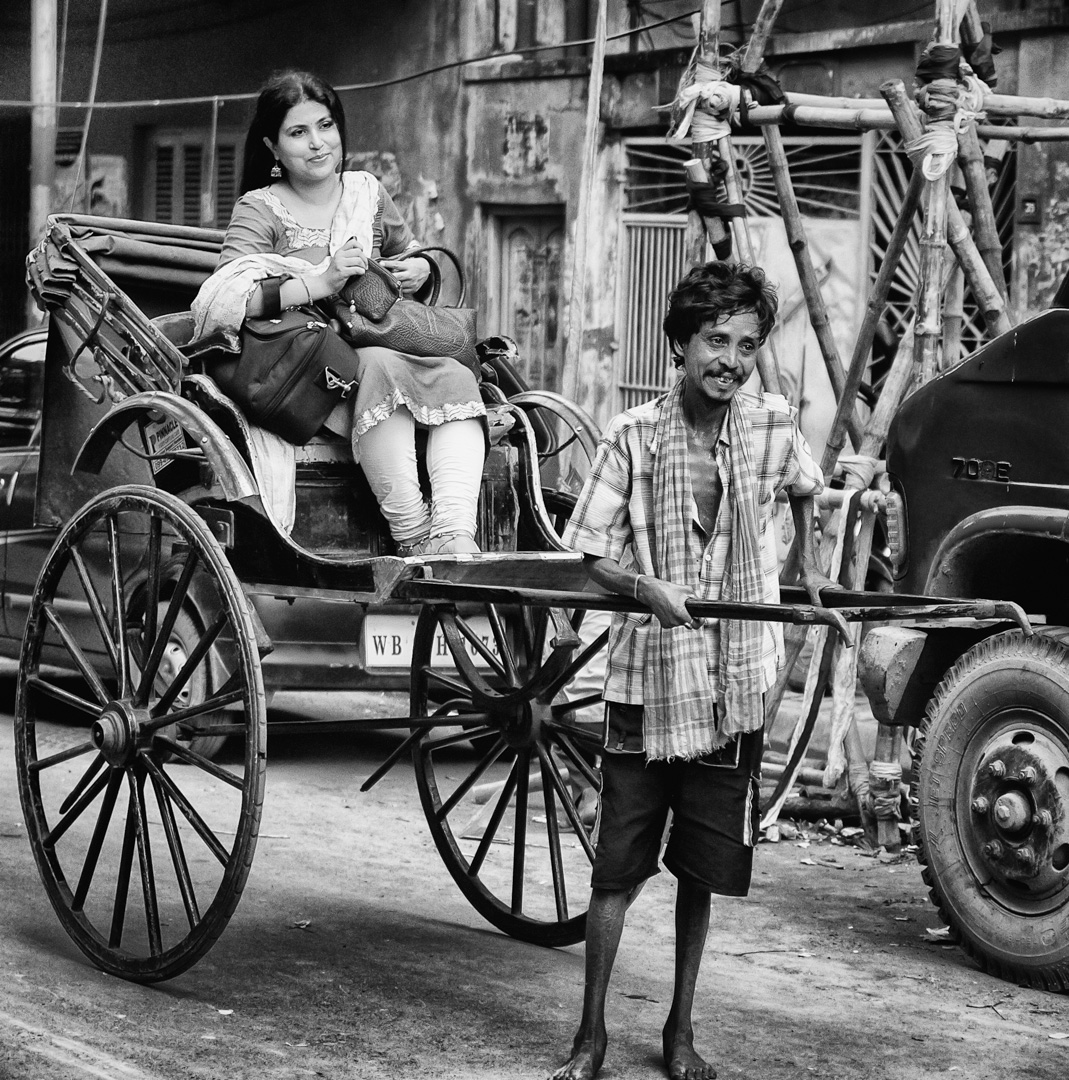For most of us, it is difficult to watch a person being used as a beast of burden pulling another person and their belongings. It seems inhumane, all the more because of India’s caste system. Nonetheless, rickshaw wallahs (pullers) are an ubiquitous part of Kolkata. In fact, rickshaws have plied the streets of this city for over a century. They first appeared in the late 1800s, brought by Chinese traders to transport their goods.
Today, about 18,000 rickshaw wallahs remain, though their continued existence is tenuous. The banning of hand pulled rickshaws in Kolkata has been in the works for years. A typical wallah’s day starts at 5 am delivering goods to merchants around the city. Then, he may take children to school, trusted and relied upon by the family. After a short rest, he continues delivering clients and their goods around the city until way past dark. All of this for about $3 per day. Out of that meager income, comes rental for the rickshaw, bribes to the police, a meal and a loft to sleep in, along with other pullers. In spite of the hard work and low wages, the pullers are proud of what they do and of the relationships they have with their customers.
Monsoon season is when rickshaws are really indispensable. They are the only vehicle that can navigate the flooded streets of Kolkata. Taxis, tuk tuks, buses, streetcars, all are useless in the high water.
If the rickshaws are banned from the streets of Kolkata, the consequences would be significant: 18,000 men would become unemployed, many school children and others who depend on the rickshaw wallahs for transport, would have to find other means; thus, further clogging Kolkata’s already impossible streets. And the iconic image of rickshaws plying the streets of this Indian city would be lost forever.


